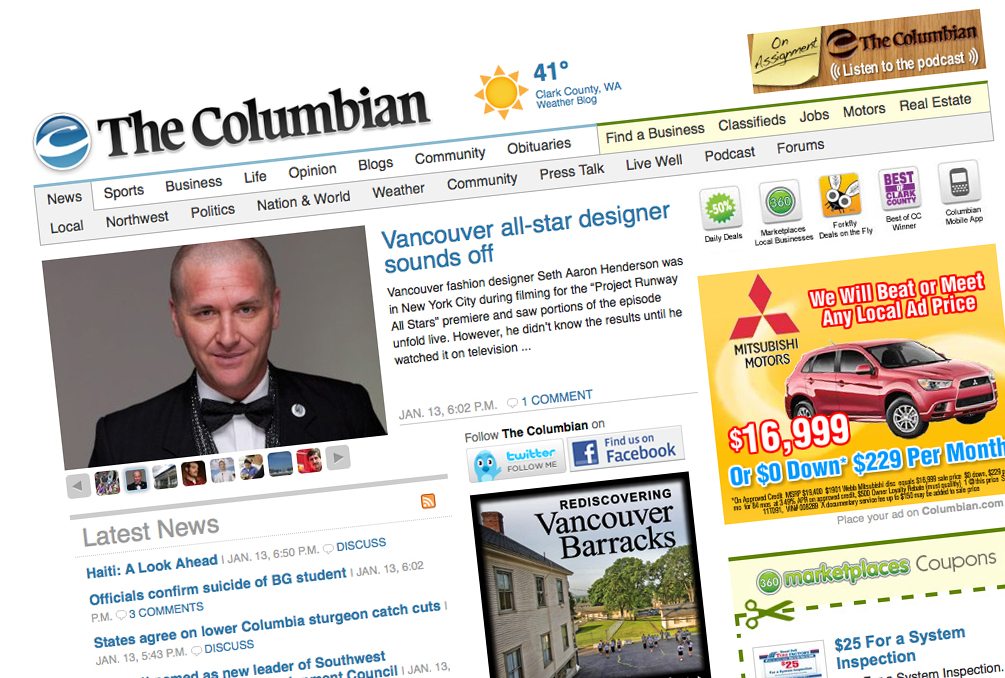Let’s all get together soon before it’s too late.
Forget about the past and let your feelings fade away.
If you do I’m sure you’ll see the end is not yet near.
Where do we go from here?
I was thinking about the Web and what it means to newspapers when this Chicago song popped into my head.
It wasn’t one of Chicago’s (earlier known as CTA) bigger hits. In fact, it was on the “B” side of an album they released in 1970.
But it always stuck with me because I felt it to be profound.
Today, The Columbian and most other newspapers are trying to figure out what to do with our websites. Like almost all newspaper websites, they don’t even come close to paying their way. Essentially, newspaper websites follow no logical business model. They bring in far less cash than it takes to produce them. Truth is, they exist only because they are being heavily supported by the print newspaper.
Still, it’s the future. So, most newspapers are willing to lose money on the operation with the hope that a viable business model shows up.
With all that in mind, I spoke to Libby Clark, our Web editor. She is a very bright, dedicated and passionate leader of our website and its content.
And content is key. No one argues this point. Content is king. Without it, all those accountants and administrative assistants and human resource folks and newspaper attorneys — important to be sure — are out of work.
So I wondered if the king, if the rules on content, were changing because of the Web.
“Are websites redefining the definition of news?” I asked.
“I would argue that the definition of news hasn’t changed much with the Web,” Libby said.
“No one would argue that what you had for lunch today is news on the Web, just because it’s happening now. It must also be relevant information.”
An excellent observation, in my view. And one that likely is held in most areas of the newspaper business. But what do you do with the likes of Facebook?
I’ve been known to tell my Facebook friends what I cooked for dinner. (OK, I need to get a life.) So I suspect the definition of “relevant” is likely to become a moving target for newspapers.
Still, I side with Libby’s view. A newspaper’s website is not intended to be Facebook.
I also asked Libby if the more traditional print standards are being adopted by newspaper websites. For example, are stories played the same way on the Web as they are in print, with the bigger stories getting bigger play?
“Yes, traditional print standards have been applied to the Web, and there has even been a resurgence lately of traditional print page design concepts influencing webpage design.
“Above the fold (top of the front page for print papers) still applies. Readers are less likely to scroll for information, so the most important information — for us it’s news, for corporations it’s their logo and main message — should go at the top of the page to the left.”
Again, Libby has it right.
In the end, most newspapers believe they’re making the right moves with content. In addition to the solid stories, our website has lots of photos, related content, documents, searchable databases and commentary from our readers. Quite robust, really.
But we have to keep working hard. And I suspect that nagging question won’t ever leave us.
“Where do we go from here?”
Lou Brancaccio is The Columbian’s editor. Reach him at 360-735-4505 or lou.brancaccio@columbian.com.




